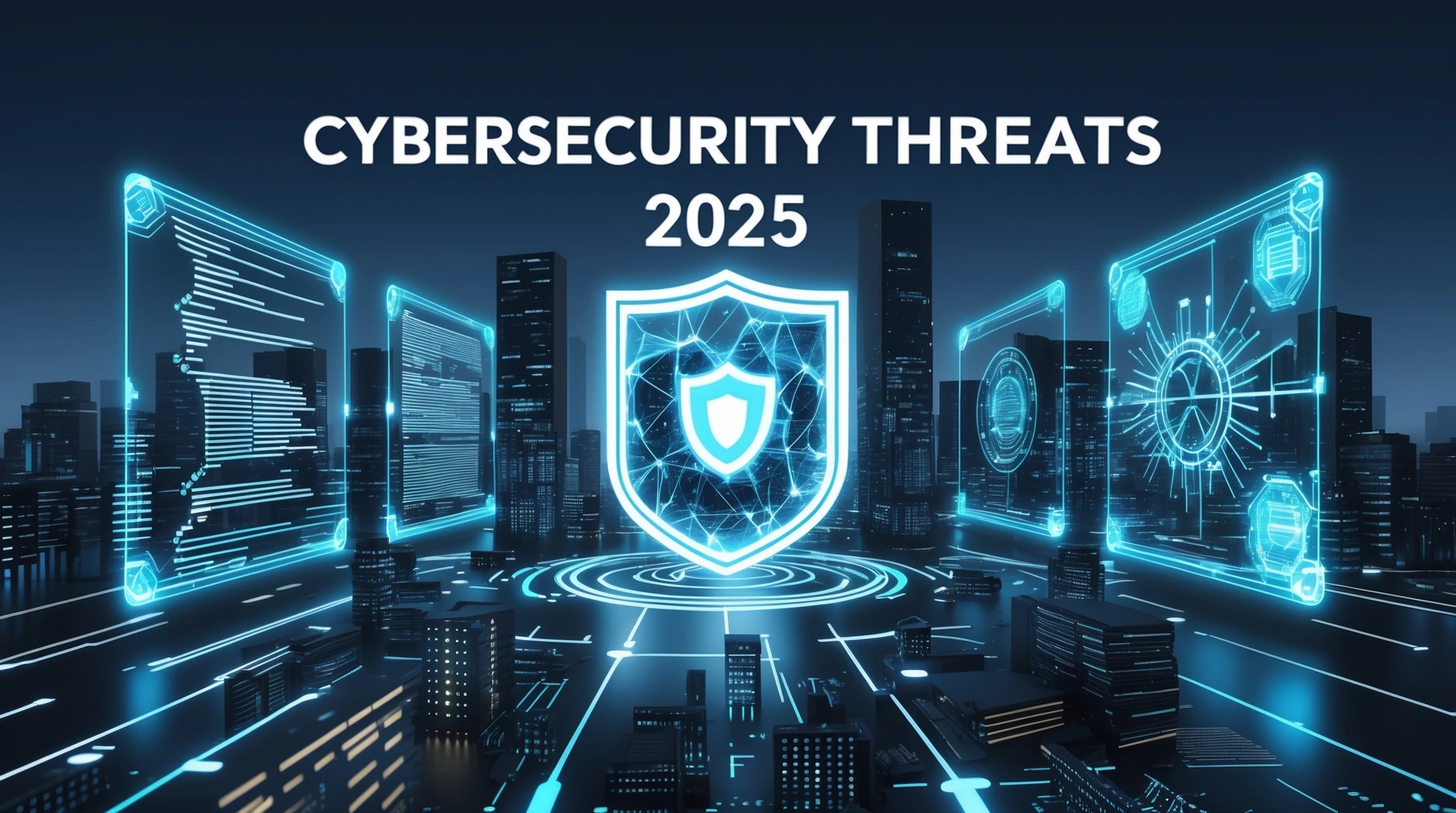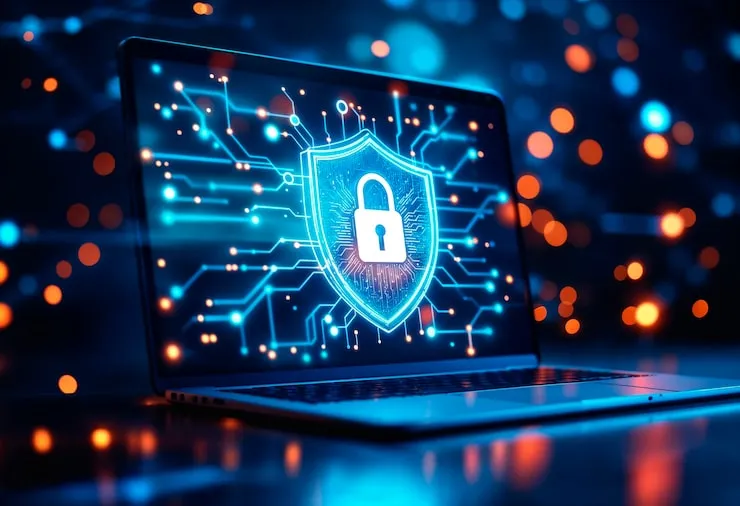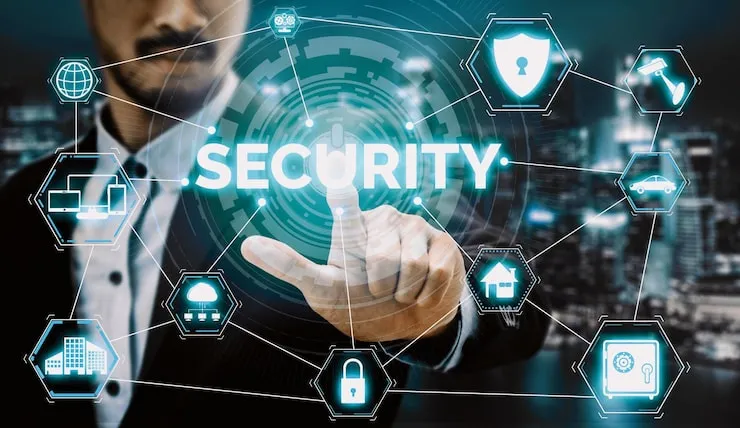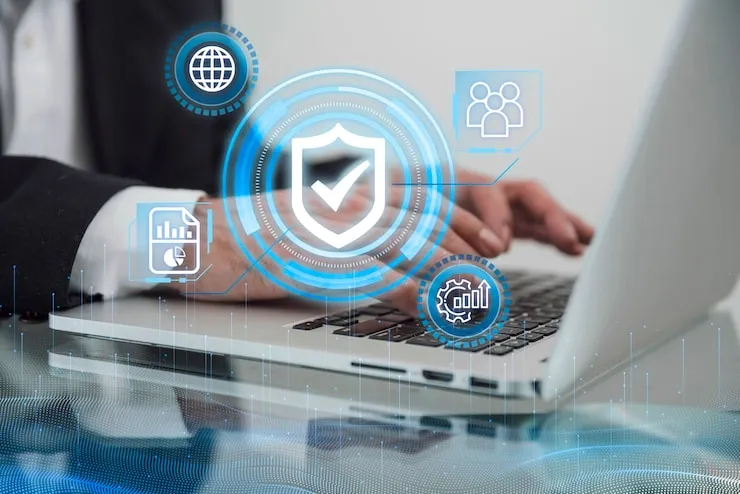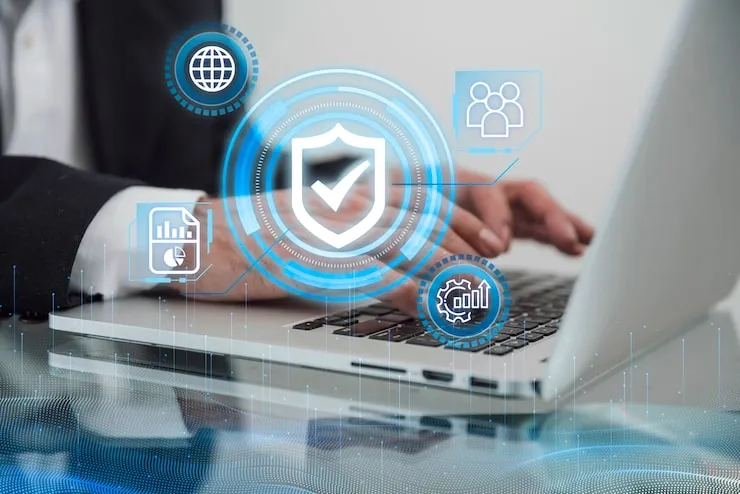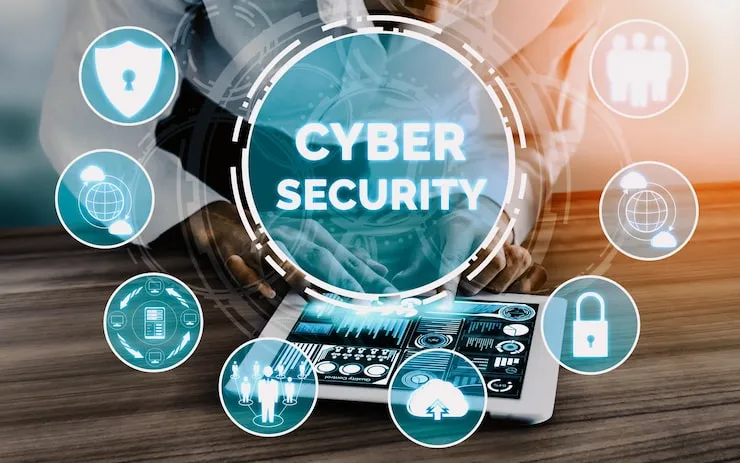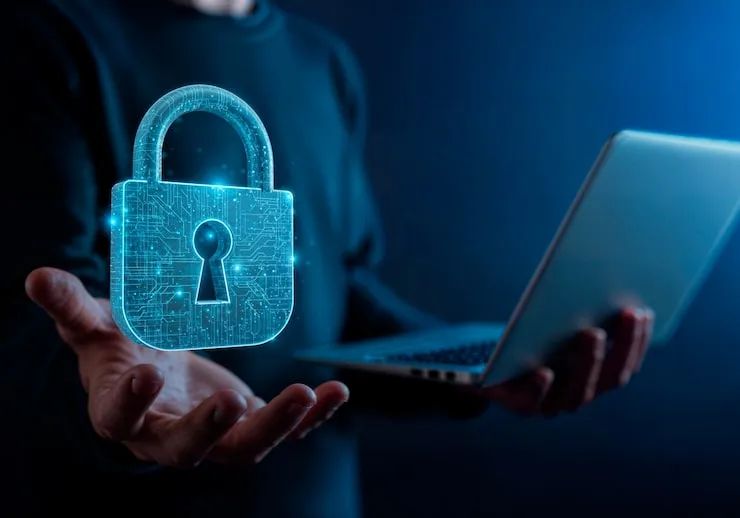Hi there! I'm Alex, a cybersecurity specialist with over 10 years in the field. Today, I want to talk about something super important that affects all of us - cybersecurity threats in 2025. The digital world keeps changing, and so do the dangers we face online.
Latest Cybersecurity Threats In 2025 That Keep Me Up at Night
The cyber world is like a busy city that never sleeps. Bad guys are always coming up with new tricks to steal our information or mess with our devices. Let me share what I'm seeing in my daily work and what you should watch out for.
AI-Powered Attacks Are Getting Smarter
Last month, I helped a small business that got tricked by an AI voice clone. The fake voice sounded exactly like their boss! The AI asked an employee to send money to a "new business partner." Luckily, the employee double-checked before sending $15,000 to a thief.
AI tools are now in the hands of hackers, making their attacks much harder to spot. These smart programs can:
- Write perfect emails with no spelling mistakes
- Copy the way your friends or boss talks
- Make fake videos that look super real
- Break passwords much faster than before
I've seen a 75% jump in these AI tricks compared to last year. What scares me most is how they keep getting better at fooling even careful people.
Cloud Service Breaches Have New Targets
My cousin's wedding photos disappeared when a cloud storage company got hacked last week. The hackers locked all the files and asked for money to give them back.
Cloud attacks are targeting smaller services now, not just the big names like Google or Amazon. Here's what's happening:
- Hackers find the weak spots in how cloud services connect
- They sneak in through these "back doors"
- Once inside, they can see or steal everything stored there
- Sometimes they lock up the files until someone pays them
I'm seeing about 5-7 new cloud breaches reported every week. Many small businesses don't even know they've been hacked until it's too late.
Internet of Things (IoT) Attacks at Home
My smart fridge started acting weird last month. It kept turning off the cooling at random times. After checking, I found it was part of a botnet - a group of hacked devices being controlled by someone else.
Our connected homes have become targets for cybercriminals. They're attacking:
- Smart speakers and virtual assistants
- Home security cameras and doorbells
- Connected appliances like refrigerators
- Smart TVs and streaming devices
These attacks have grown by 300% since last year! Once hackers control your devices, they can use them to attack bigger targets or spy on your family.
10 Interesting Facts About Cyber Security That Might Surprise You
Let me share some eye-opening facts I've learned through my work:
- The average cost of a data breach is now over $5 million for companies.
- Most successful attacks start with a simple mistake like clicking a bad link or using a weak password.
- Ransomware attacks happen every 11 seconds somewhere in the world!
- About 95% of cybersecurity breaches are caused by human error, not fancy hacking.
- The average time to detect a breach is still around 200 days - that's over 6 months of someone having access before they're caught!
- Small businesses are now the target of over 70% of attacks because they often have weaker security.
- A hacked email account can be sold on the dark web for as little as $5.
- Mobile phones are becoming the number one target for new attacks.
- Most people use the same password for at least 5 different websites or apps.
- The cybersecurity job market has over 3.5 million unfilled positions worldwide.
Latest Cybersecurity Threats in 2025 in India Are Growing Fast
My recent trip to India showed me how quickly digital threats are growing there. With more people coming online every day, India faces some special challenges. Last year, my friend Raj in Mumbai lost money when his bank account was hacked. The criminals used a fake government app that looked totally real. India is seeing a big jump in mobile payment attacks. With so many people using phones for money transfers and shopping, hackers are following the cash.
The biggest problems include:
- Fake government service apps that steal personal information
- QR code scams at shops and restaurants
- Phishing attacks in regional languages
- Attacks on digital payment systems
Government data shows cybercrimes in India have gone up by 85% in just one year. That's really scary when you think about all the new internet users who might not know about these dangers.
Cybersecurity Trends 2025 That Everyone Should Know About
The cyber world keeps changing. Here are the big trends I'm watching closely:
Zero-Trust Security Is Becoming the New Normal
Remember how company networks used to work? Once you got inside, you could access almost everything. Those days are gone! Now, security follows the "trust no one" approach. Even if you're already inside the network, you still need to prove who you are for each thing you want to access. I helped set up this kind of system for a hospital last month. Every doctor and nurse has to verify their identity multiple times during their shift. It's a bit more work, but it stopped several attack attempts in the first week alone!
Quantum Computing Threats Are Getting Closer
This might sound like science fiction, but it's real. Super powerful quantum computers could break most of our current encryption in minutes. While full quantum computers aren't here yet, cyber attackers are already stealing encrypted data to decode later when the technology catches up. I'm advising all my clients to start switching to "quantum-resistant" security now, not later. The time to prepare is before the threat is at our doorstep.
Supply Chain Attacks Have Gone Mainstream
Remember the big SolarWinds hack? That was just the beginning. Now, attackers are targeting the software supply chain more than ever. Last quarter, I investigated an attack where hackers put bad code into a popular software update. When companies installed the update, they also installed the hidden malware. These attacks are super hard to catch because the dangerous code comes from trusted sources. It's like finding out your multivitamin contains something harmful - you'd never suspect it because you trust the company.
How These Threats Affect Regular People Like Us
You might think, "I'm not a big company, why would hackers care about me?" But the truth is, regular folks like us are targets too.
Identity Theft Has New Tricks
My neighbor Jane had her identity stolen last month. The thief didn't just open credit cards - they created a whole fake online presence using her name and photos from social media.
Identity theft has gone beyond financial fraud. Now criminals are:
- Creating fake social media profiles to scam your friends
- Using your identity to apply for government benefits
- Making deep fake videos of you saying or doing things you never did
- Building complete "digital twins" that can ruin your reputation
The scariest part? Jane only found out when a friend called to ask why she was "acting weird online."
Digital Extortion Is Getting Personal
A family in my neighborhood faced a terrible situation when hackers broke into their teenager's laptop. The criminals threatened to share private photos unless they paid money.
These personal attacks are becoming more common because:
- Home networks are usually less protected than businesses
- People store sensitive information on personal devices
- Emotional pressure makes people more likely to pay
- Many victims don't report these crimes due to embarrassment
I helped this family contact authorities instead of paying, but many people feel too scared or ashamed to get help.
Financial Fraud Is More Sophisticated
My aunt almost lost her retirement savings to a very clever investment scam. The fraudsters created a fake investment app that looked completely professional.
Financial scams are using advanced techniques like:
- Fake investment platforms with real-time data feeds
- Phishing sites that perfectly copy bank websites
- Bogus customer service agents who know your personal details
- Investment opportunities that start small but ask for bigger amounts later
What makes these scams work is that they look legitimate and often start with very small investments to build trust.
Protecting Yourself in This New Cyber Landscape
With all these scary threats, what can you do to stay safe? I've put together some simple steps that really work.
Basic Steps That Make a Huge Difference
You don't need to be a tech expert to protect yourself. These simple habits can stop most attacks:
- Use a password manager to create and remember strong, unique passwords
- Turn on two-factor authentication for important accounts
- Update your devices as soon as new software is available
- Be suspicious of unexpected messages, even if they seem to come from friends
- Back up your important files regularly to a separate device or secure cloud service
I do all these things myself, and they've kept me safe despite working in high-risk cybersecurity research.
Teaching Kids About Digital Safety
My 10-year-old niece knows more about online safety than many adults! Kids are growing up digital, but they need guidance.
I teach the children in my life to:
- Never share personal information online
- Ask a trusted adult before downloading anything
- Be careful about making friends in games or apps
- Tell someone if anything makes them uncomfortable online
- Understand that not everyone online is who they say they are
These simple lessons can protect kids from many of the dangers they might face online.
What to Do If You're Already Hacked
Sometimes, despite our best efforts, the bad guys still get through. If you think you've been hacked:
- Change your passwords right away, starting with your email
- Contact your bank if financial information might be at risk
- Check your devices for malware using security software
- Watch your accounts for strange activity
- Report the crime to the police and cybercrime authorities
Last year, my credit card was used by someone in another country. Because I caught it quickly and reported it, I didn't lose any money.
The Future of Cybersecurity: Hope on the Horizon
Despite all these threats, I'm actually optimistic about our digital future. Here's why:
Better Security Tools Are Becoming Easier to Use
When I started in cybersecurity, good protection required technical skills. Now, amazing security tools are available to everyone.
New tools can:
- Automatically detect and block suspicious activities
- Alert you if your personal information is found on the dark web
- Check if websites are safe before you share information
- Protect your whole home network with simple setup
These tools keep getting better, cheaper, and easier to use every year.
Awareness Is Growing Everywhere
Five years ago, I had to beg my parents to use strong passwords. Now they text me asking if an email looks suspicious! This growing awareness is our best defense. When everyone knows about cyber threats, hackers have a much harder time finding victims.
International Cooperation Is Increasing
Cybercrime crosses borders, but now countries are working together better than ever to fight back. Last month, a big international operation took down a huge network of computers that were spreading ransomware. This kind of teamwork between countries gives me hope.
Conclusion: Staying Safe in an Unsafe Digital World
The online world in 2025 has plenty of dangers, but with awareness and simple precautions, you can protect yourself and your loved ones. I hope this look at the latest cybersecurity threats in 2025 helps you stay safer online. Remember, cybersecurity isn't just for experts - it's something we all need to practice every day. Have you noticed any suspicious online activity lately? What steps do you take to protect yourself? I'd love to hear your experiences and answer any questions you might have!



